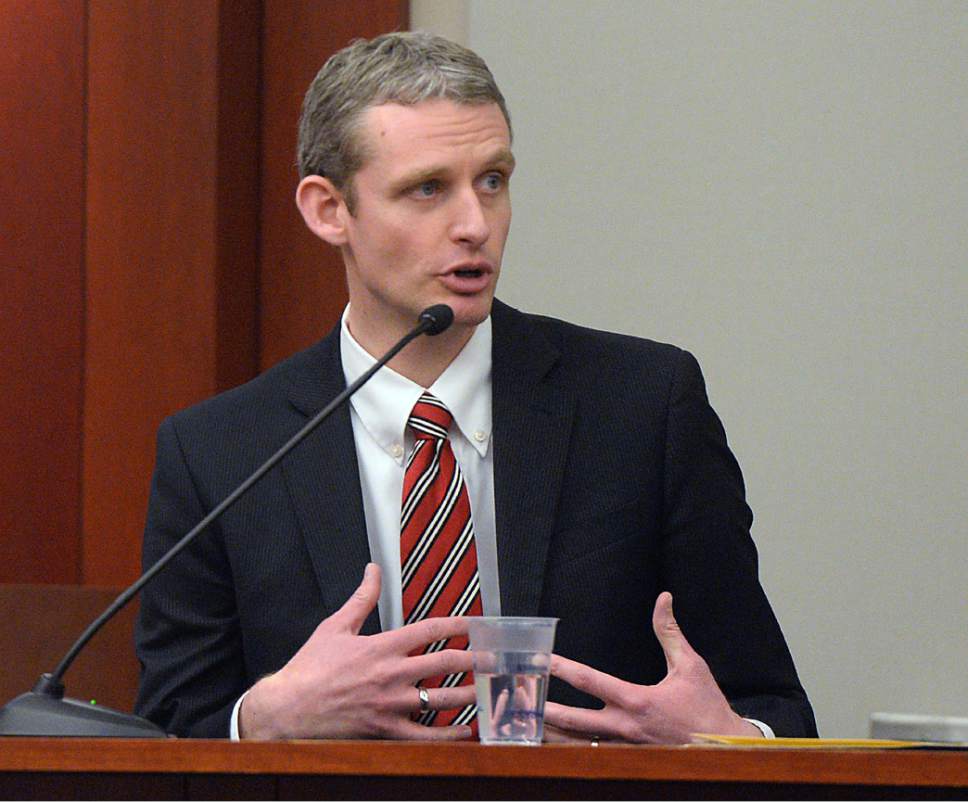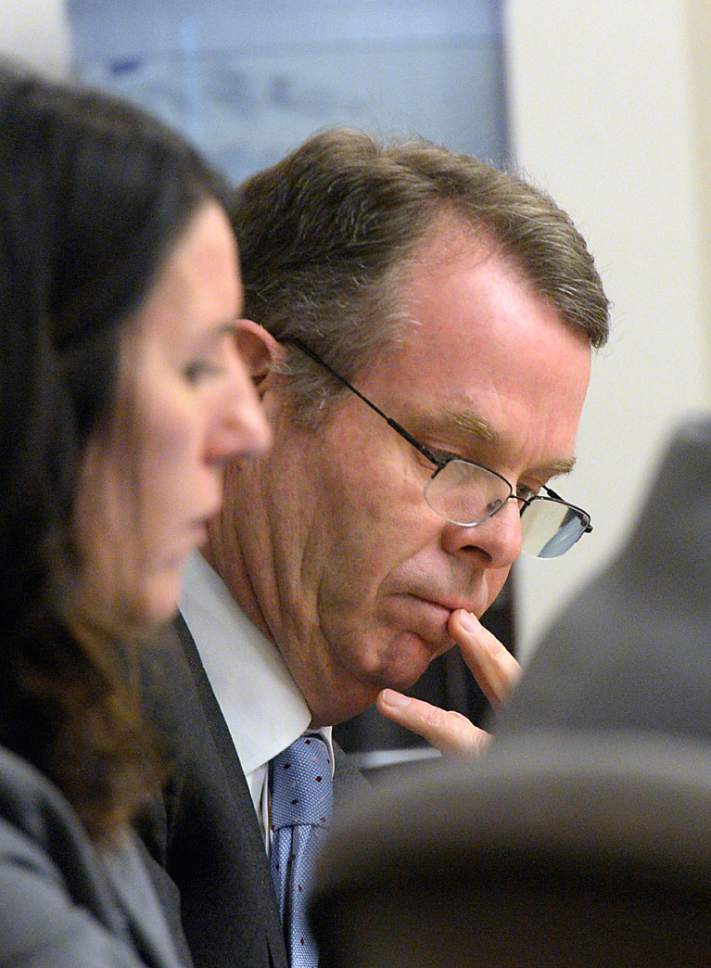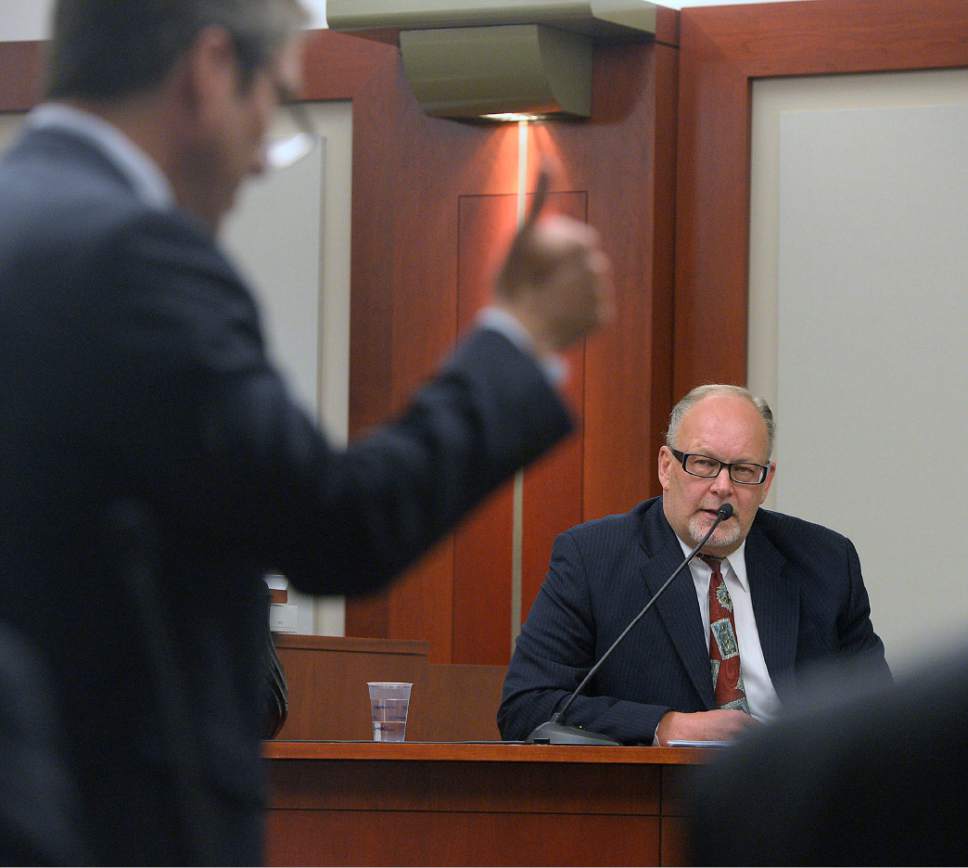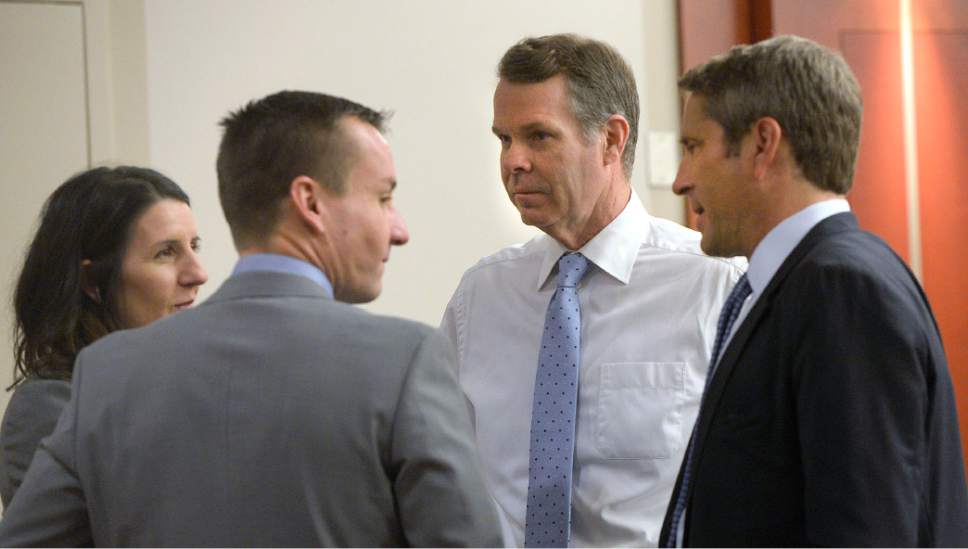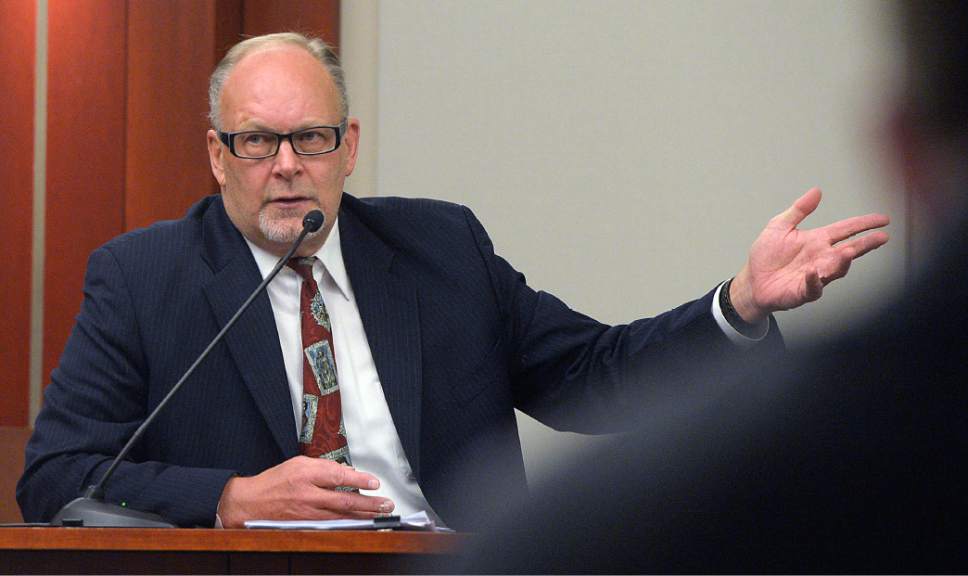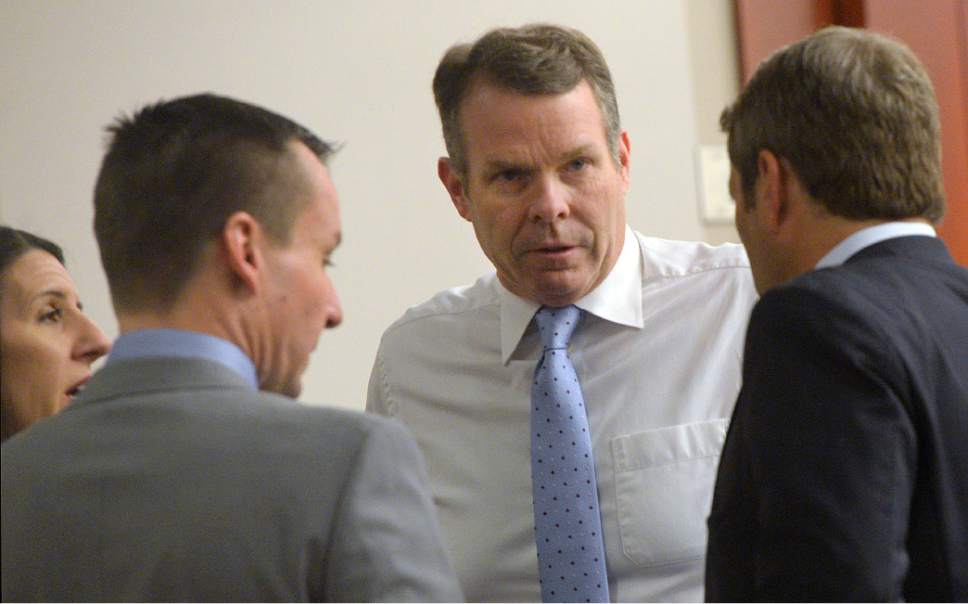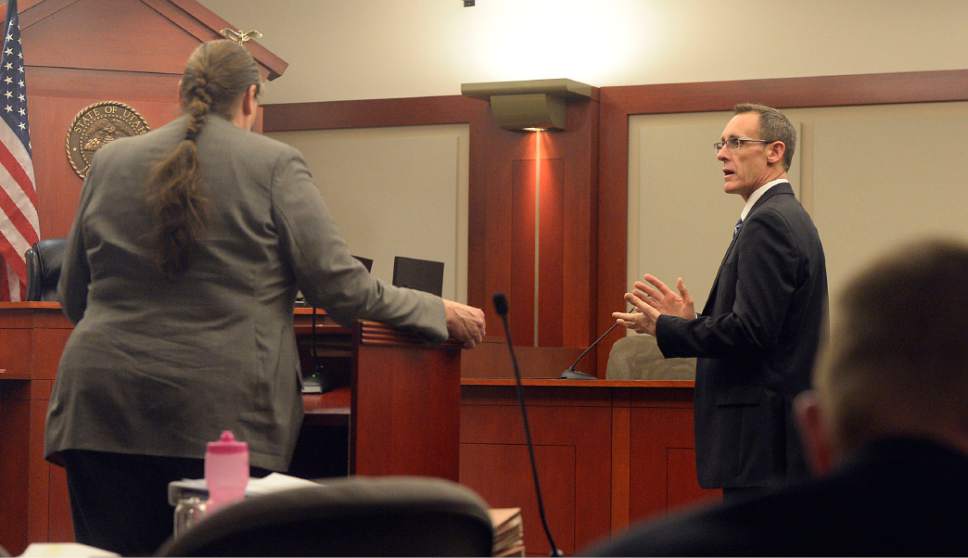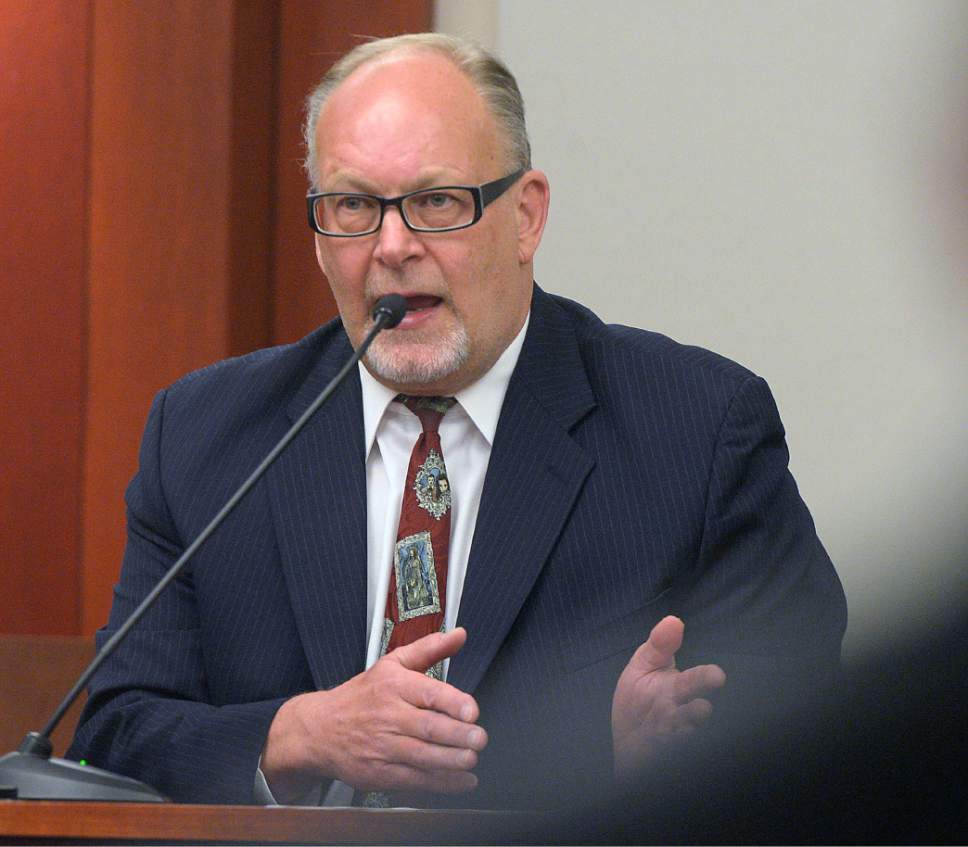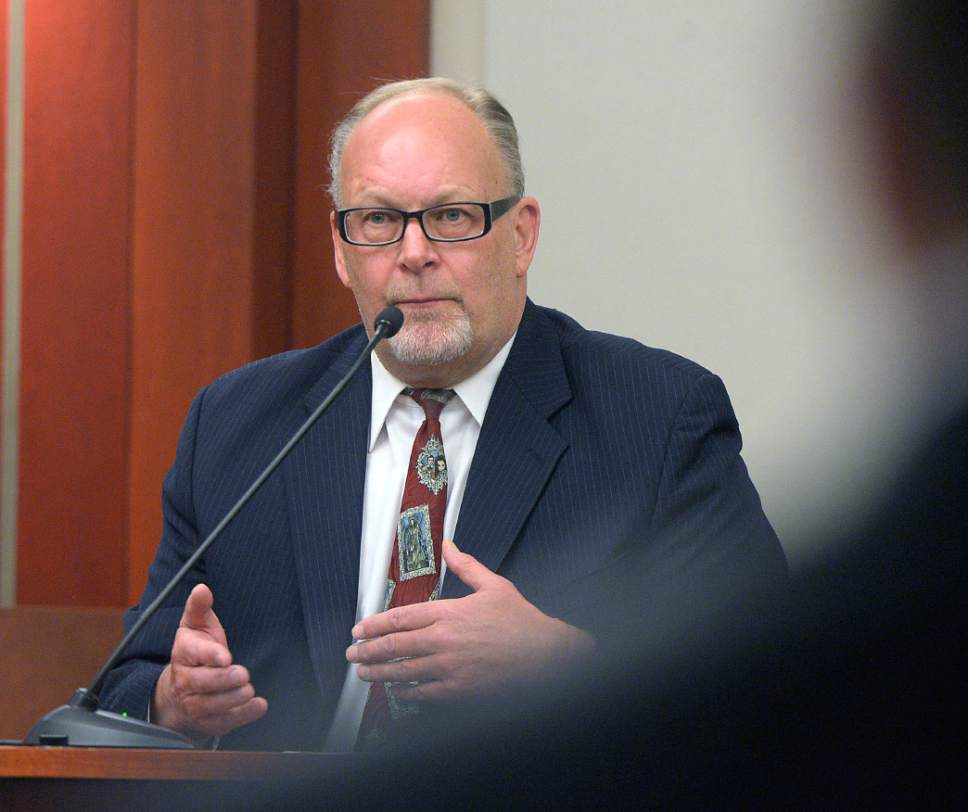This is an archived article that was published on sltrib.com in 2017, and information in the article may be outdated. It is provided only for personal research purposes and may not be reprinted.
John Swallow's public corruption trial moves into its eighth day Friday — halfway through the planned 16 days the court has scheduled for the proceedings.
It may not, however, be close to being done.
Much of the testimony has been slower than anticipated and prosecutors are a bit behind in calling witnesses.
One significant delay during the past week: The refusal of imprisoned St. George businessman Jeremy Johnson to testify.
Johnson took the stand for the first time Wednesday and invoked his Fifth Amendment right against self-incrimination. On the advice of his attorneys, he has also refused to accept an immunity deal offered to him by Salt Lake County prosecutors out of fear that it wouldn't protect him from prosecution by the federal government.
Third District Judge Elizabeth Hruby-Mills found Johnson in contempt and sent him to jail for 30 days. On Thursday, Johnson took the witness stand and again declined to testify.
The latest from Day 8 of the trial:
3:10 p.m.
Renae Cowley, a lobbyist who ran John Swallow's campaign for attorney general, testified that Swallow never promised donors any favors. Rather, he told donors that contributions were not "fire insurance" or protection.
Cowley's testimony began with responses to questions about an August 2012 fundraiser hosted by Timothy and Jennifer Bell.
(Swallow made a call on the Bells' behalf to lobbyists for the Bank of America, which was foreclosing on the Bells' luxury home. The Bells received a loan modification, and Swallow allegedly told lobbyists that the state would withdraw its intervention in the Bells' lawsuit over the foreclosure.)
A few days after the fundraiser, Kirk Torgensen, then-chief deputy Utah attorney general, called and told Cowley the fundraiser was a "poor decision" because the Bells were involved in a state foreclosure lawsuit.
Cowley says she didn't know the cost of the event, but guessed it was about $1,000, based on comparisons with other events.
Cowley says she never saw receipts for the Bell fundraiser, but thought the reported $25,000 cost was unreasonably high. She said there was talk about the actual value of the fundraiser and amending the disclosure report because the high cost would raise red flags.
Cowley says after conversations with John Swallow and campaign consultant Jason Powers, she called Timothy Bell to ask him to amend the campaign disclosure to $1,000. Bell amended the disclosure after the election in January 2013.
Cowley says she has always cooperated with investigators, but later had a search warrant served on her home.
She said agents in riot gear came to her home, searched computer and phone, and then didn't seal the warrants to protect her.
Cowley started to cry as she noted that the raid had occurred after she had provided her computer files and other information to investigators.
She said a Utah Highway Patrol trooper had followed her home on day of the warrant service, and police took her phone and prevented her from calling a lawyer.
She said the warrants included hurtful, "salacious things about her."
During the search, agents pulled out her underwear, smirking, Cowley recalled, still crying. Halfway through the search, investigators she had met with arrived but ignored her.
Cowley said: "I was told to trust them; I felt violated. I felt unsafe in my own home."
—
Noon
A former telemarketer told jurors that he called then-candidate John Swallow in April 2012 because he was "madder than hell" and needed help with the Utah Department of Commerce.
Aaron Christner's business had been slapped with $400,000 in fines for failing to follow consumer-protection rules.
Christner said the idea to contact Swallow came out of a phone call with a reporter from City Weekly, and that he "Googled" Swallow's number.
During the call, Christner said, Swallow told him he could set up a meeting with then-Utah Attorney General Mark Shurtleff to see if they could resolve the issue.
Swallow also told Christner he knew of other issues with Commerce and that if elected, he planned to move the consumer-protection division into the attorney general's office.
Christner recorded the call and turned it over to City Weekly, which used it as the basis for a story.
Christner said he never set up a meeting with the attorney general's office.
—
11 a.m.
A lawyer who worked for Jeremy Johnson testified to three meetings with John Swallow during the summer of 2011, each seeking input and advice on how the St. George businessman could resolve an investigation of his company by the Federal Trade Commission.
Travis Marker said Johnson had been arrested by federal authorities on criminal charges while on a trip to Costa Rica and was sitting in the Davis County Jail.
Swallow was then the civil-division chief at the Utah attorney general's office. Marker says the first two meetings were brainstorming sessions, but nothing really come of them.
During the third meeting, he said, Swallow asked Marker if Johnson had any more money and stated that could help open the door to more "options."
The amount Swallow asked for was $120,000, although Marker said there was no specific use tied to the figure.
But Marker said he told Swallow that Johnson, who had paid for lobbyist work in the past, had no more cash because the FTC had frozen his assets.
—
9:10 a.m.
Judge Elizabeth Hruby-Mills suspended Jeremy Johnson's 30-day contempt sentence for three days, so the status of his immunity agreement — protection from prosecution for testifying — can be worked out.
He will be brought back to court Tuesday for a status update on the immunity deal.
Earlier Friday, Johnson's attorney Mary Corporon said a letter issued overnight by Utah Attorney General Sean Reyes says Salt Lake County District Attorney Sim Gill is cross-deputized with statewide powers.
That resolves some, but not all of the Johnson's immunity issues. But the feds refused overnight to sign an immunity proposal.
Corporon said Johnson is not opposed to testifying, but he has a genuine fear of retribution from federal prosecutors.
Johnson also fears testifying will land him in protective custody in federal prison, which is more restrictive than where he is currently housed. He is serving an 11-year sentence in California for a conviction last year on eight charges of providing false information to a bank.
Corporon asked the judge to let Johnson out of jail over the weekend — back to the custody of federal authorities — so attorneys have access to him to discuss an immunity deal with the federal government.
Though released from the county jail, Johnson will be under FBI supervision and guarded but not free.


